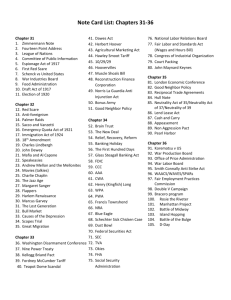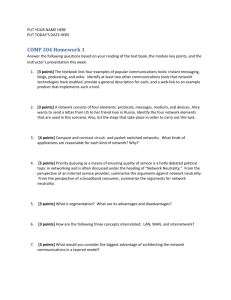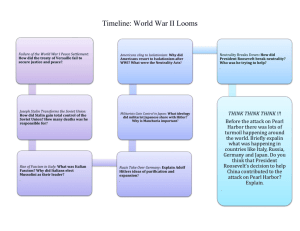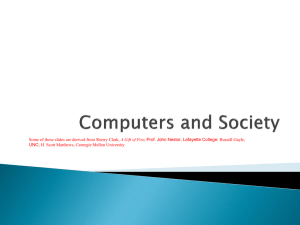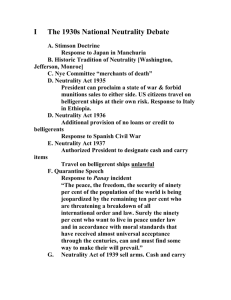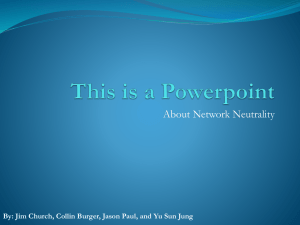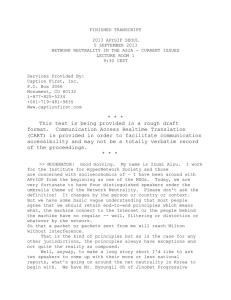Room1(#142): Openness Network neutrality in the Asia Moderator
advertisement
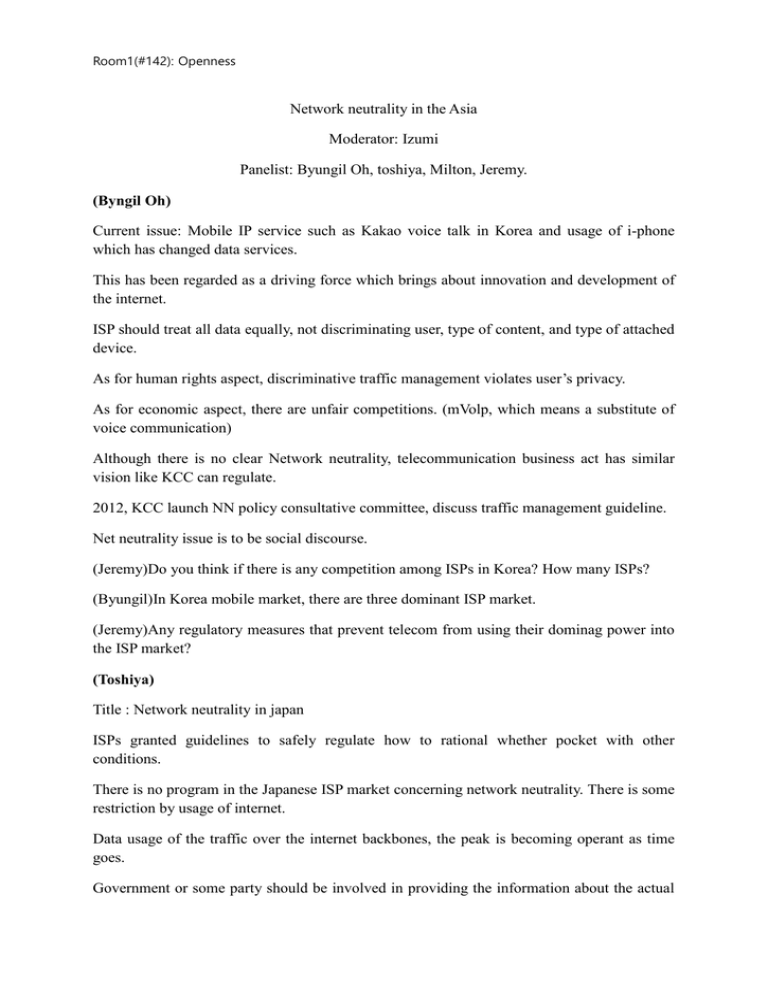
Room1(#142): Openness Network neutrality in the Asia Moderator: Izumi Panelist: Byungil Oh, toshiya, Milton, Jeremy. (Byngil Oh) Current issue: Mobile IP service such as Kakao voice talk in Korea and usage of i-phone which has changed data services. This has been regarded as a driving force which brings about innovation and development of the internet. ISP should treat all data equally, not discriminating user, type of content, and type of attached device. As for human rights aspect, discriminative traffic management violates user’s privacy. As for economic aspect, there are unfair competitions. (mVolp, which means a substitute of voice communication) Although there is no clear Network neutrality, telecommunication business act has similar vision like KCC can regulate. 2012, KCC launch NN policy consultative committee, discuss traffic management guideline. Net neutrality issue is to be social discourse. (Jeremy)Do you think if there is any competition among ISPs in Korea? How many ISPs? (Byungil)In Korea mobile market, there are three dominant ISP market. (Jeremy)Any regulatory measures that prevent telecom from using their dominag power into the ISP market? (Toshiya) Title : Network neutrality in japan ISPs granted guidelines to safely regulate how to rational whether pocket with other conditions. There is no program in the Japanese ISP market concerning network neutrality. There is some restriction by usage of internet. Data usage of the traffic over the internet backbones, the peak is becoming operant as time goes. Government or some party should be involved in providing the information about the actual Room1(#142): Openness quality, how the actual condition occurs. Net neutrality and internet governance: to change the framework of stakeholder of internet governance. (Milton) Title : putting control into What deep packet inspection does is it goes further into the packet and reads the data. There are many different kinds of DPI applications. There are some tensions with three fundamental principles of classical internet governance. The end to end argument, intermediary immunity, expectation privacy The cable modem ISPs more likely to use DPI for bandwidth management than the DSL provider. In the U.S., there are big explosions and civil society mobilization. China telecom is doing a lot of DPI, Q. In general do you think is any legitimate player for DPI or certain conditions? A. there are many legitimate applications of DPI, particularly private cooperate telcos and mobile market. Q. A. When it comes to behavioral ad. it’s not that different than DPI. (Jeremy) Hard cases in net neutrality Network principles would seem to outlaw practice that some consumers actually rather like. The eight consumers right – The right to be informed, the right to choose. These two are related to network neutrality. When net neutrality costs the consumer more, we can still be in favor of net neutrality. The content provided or its content delivery network may peer or collocate Q. There is a need for information or informing user? A. Shifting data charges to the content provider is a clear breach providing free access to third party service provider. Room1(#142): Openness Q&A (Adam, peak professor Jit) Q. ISPs survey found they were violating and how significant is that and could an agreement to secrecy of communications. That would be one sort of idea and the other is that the Japanese business law requires what is the word. Q. (no name, Hongkong) In developing country, Wikipedia is for free to use? Q. (Adam) Facebook A. (Toshiya) a frequent usage of E-mail in the U.S. A.(Jeremy) about switching cost A.(Byungil Oh) There is a switching cost to change. But a contract is the biggest problem. A.(Jeremy) A.(Toshiya) email address, IPS, Mobile portability Q.(Izumy) About secrecy of communication. A.(Milton) NSA Surveillance Q.(Izumy) In Korea, there is a special historic background like Korean war. Keeping communication is one of the human right? A.(Byungil Oh) Agency for National Security Planning, Wiretapping by using technology. Secret communication legitimated in privacy protection act A.(Izumy) Secret communication A.(Jeremy) long-term point of view on surveillance. A.(Adam) the Communications Act is not for the human right. There is not only an an intermediary intermediary but a service agent. A.(Milton) We need to think about that ability. It is important to know who users are and process. A.(Toshiya) Government did not indicate about DPI. ISP is a comprehensive term and they have own standards in Japanese market. Q.(Izumy) There is a contract to provide Wikipedia for free to developing countries. What’s the relationship with ISP and contents provider? A.(Jeremy) It’s a matter of competition. Facebook already has the control of the market. If so it is good for users to use Facebook freely because Facebook is dominant contents provider. Room1(#142): Openness Q.(Izumy) Is there any a specified contract on ISP and Portal site in Korea? A.(Byungil) That is not to be. Q.(Izumy) Japanese prefer to use Korean contents. But Korean likes internal services. For what? A.(Byungil) It is not related to this subject. Q.(Milton) There is no difference on ISP and it is debatable on violation of Network neutrality. A.(Toshiya) One is the human right, the other is about competition. Contract on ISP would be fine if only they can provide better services to people. And charging systems are free. Q.(no name) How far a personal choice is allowable concerning Network neutrality? A.(Byungil) It really depends. An age group is also needed to consider.

